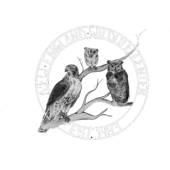
Nuisance wildlife is a term I rarely use, but hear almost on a daily basis from callers in the community. The definition of nuisance wildlife is any animal that interferes with other human activities or that is menacing, or destructive. There are the animals that eat the birdseed left out, dig up gardens, enter our homes, spread disease or have become aggressive.
When people call, they only want one thing. Get this animal off my property. I believe it is more important to educate the public on why the animals are there in the first place, and to discuss what can be done to get them to relocate on their own.
Wildlife has moved into our backyards because we have destroyed their habitat, and because we encourage it on a daily basis. Most people I know enjoy feeding wildlife in their yards. Wildlife is beautiful to look at, especially babies. The feeding of wildlife is the number one reason these animals come to your yard. Raccoons do not understand that the birdfeeders are only for birds (and many times, only for the pretty ones). Birdseed on the ground attracts squirrels, raccoons, skunks, opossums, foxes etc. Homeowners get angry when these animals empty their feeders, and then consider them a nuisance. People shoo away starlings, grackles, and sparrows. They only want the orioles, cardinals, finches and blue birds. Nature doesn’t work that way. Once food is out there, it will attract every hungry animal and they will soon learn it is an easy meal and return and bring their family.
People will feed the squirrels and they get angry when they come in groups too close to their house, and eventually find a gap in the structure and move in for a nice warm home in the winter and raise their babies. Feral cats are fed outside and this brings coyotes, foxes, raccoons and opossums. They can’t read the sign that says “for feral cats only”. Feeding any of these animals will lead to mice and rats coming to your yard and in your house. These are an opportunity for a meal for snakes and coyotes and foxes, so now they will come also.

You can see how a big reason we have “nuisance wildlife” is our own doing. Backyard feeding is not recommended by the Humane Society of the United States, all wildlife hospitals, and wildlife rehabilitators. Unless under extreme conditions, there is plenty of food in nature for these animals to survive if we haven’t completely destroyed their habitat. Having them survive on only the food available also promotes survival of the healthiest animals and leads to a stronger ecosystem.
Wildlife in general search for three main things necessary for survival: food, water and shelter. As humans continue to move into their habitat, interactions with wildlife become more frequent. The competition for food makes them more daring and they become less cautious around humans. This results in potential injury to humans, but more frequently, injury or death to wildlife.
How do we learn to safely co-exist with wildlife? First, learn the laws and regulations of your state. Massachusetts has very strict wildlife laws.
All native birds are federally protected, as well as some non-native species. It is illegal to hunt, pursue, capture, kill or possess any migratory bird, nest or egg. This means you cannot move an active nest of birds because they are too close to your door or making a mess on your desk.
Moving and trapping any wildlife on your property is illegal, ineffective and harmful to the animal. You cannot move that woodchuck, bunny or squirrel to nice place in the woods. This will not solve your problem. New animals will fill in the void. If diseased, the animal may spread this to the new area. It will struggle to find food and water to survive, and may be attacked by animals already in the area. You are disrupting the ecosystem, which is how this problem began in the first place.
Once you know what you can’t do, educate yourself to what you can do. First of all, stop feeding animals outside. It is the number one reasons wildlife come to your home, and get aggressive. Check your house for ways animals can get in to find shelter, keep warm, and raise babies. Fill in any gaps, cap chimneys, keep windows closed and sealed. Do not interact with wildlife on your property unless it is to help them maintain their distance. Make loud noises, spray water, play music, all to get them to realize it is not a good place to stay. Check under decks and sheds and put up a barrier so they cannot den underneath. Clean up brush piles, and piles of debris. If wildlife does not find food, water or shelter on your property, they will not stay. Wildlife in the wild and not on your property is no longer nuisance wildlife.
Unfortunately, humans have totally created this situation and we have to fix it legally and ethically. Talking to a wildlife center will answer your questions and give you some ways to solve your problem without killing any animals.
The following quote is one of my favorites:
“Don’t destroy my home and then ask why I wander into yours.”
If we are responsible stewards of the environment, we can help reverse the damage we have done.
To learn more about the Cape Wildlife Center or help in their mission, visit www.capewildlifecenter.com or call 508 362-0111. Caryn Ritchie is on staff of the Cape Wildlife Center and holds both a Massachusetts wildlife rehabilitator’s license and a federal permit to rehabilitate migratory birds.

Recent Comments